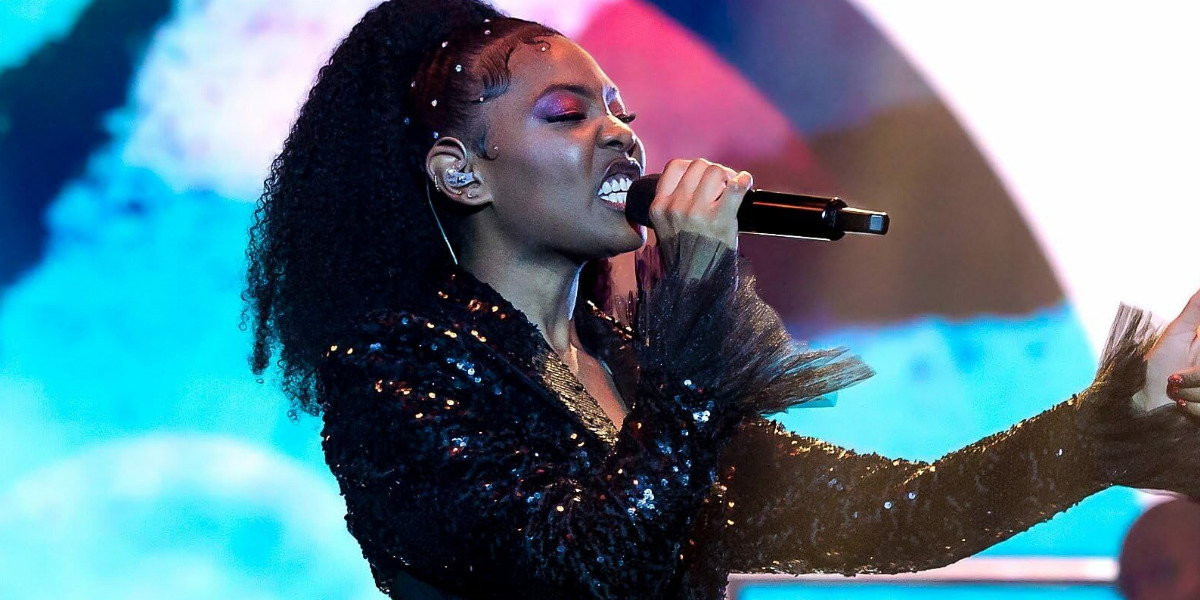Netflix’s drama musical show ‘Champion’ tells a story of epic sibling rivalry set within the world of the UK’s rap and R&B industry. Bosco Champion had a promising rap career ahead of him before his unfortunate run-in with the law that landed him a two-year prison sentence. Nonetheless, the man is prepared to restart his musical life after his return home. Yet, Bosco’s personal issues clash with his sister and behind-the-scenes collaborator, Vita, coming across an opportunity of a lifetime once her own talent comes out in the light. Thus, on opposing sides for perhaps the first time in their lives, the Champion siblings must navigate the already unforgiving industry while dealing with the newfound familial tension.
In following Bosco and Vita in their musical journey, the series delves into the rich culture of British R&B while exploring the nuances of being a Black and female artist. As such, the story that the series ends up charting remains ripe with authenticity, leading viewers to wonder— is there a correlation between the Champion siblings and real life?
A Well-Researched Drama About The Music Industry
No, ‘Champion’ is not based on a true story. The series is an original idea created by Candice Carty-Williams, who helmed the story’s inception. Carty-Williams, a renowned, award-winning author known for novels like 2019’s ‘Queenie’ and 2022’s ‘People Person,’ debuted into the world of storytelling through television with this project. Initially, Carty-Williams began working on this story as a young Black woman’s journey through the music industry.

However, once the author started collaborating with her co-creator and executive producer, Bryan Elsley, she realized the story’s full scope, deciding to build her narrative around a brother-sister duo. The decision further shaped the show into an exploration of family dynamics— particularly a Caribbean family, reflecting Carty-Williams’ roots. Thus, music and family became the two cornerstones of the series, infusing its narrative with both an intimate universal relatability as well as a greater-than-life perspective.
The show maintains a sense of realism and brutal authenticity in both aspects of its narrative. While viewers will find a riveting emotional center in Vita and Bosco’s unforeseen rivalry, they also get to peek behind the curtain of the music industry and delve into its more rocky realities.
While discussing the same in a conversation with The Face, Carty-Williams said, “[I had a clear idea about] What I want to say about how it [the music industry] treats people— how it treats women who are lighter, darker, thinner, [and] bigger. How it treats men, then: what are the mental health implications of being so famous? What does it mean when your family is leaning on you as not just the star but also as a financial provider? What does that do to your mental health?”
For the same reason, the series employed professional consultancy from a number of individuals with intimate knowledge of the British R&B and music scene. From journalists, music specialists, and archivists to singers and rappers, Carty-Williams and her creative team invited many specialists into the writer’s room to get a genuine idea of their reality. “I won’t name who we spoke to because they told us some very personal things and delicate things. But it was just as horrifying as we’d expected,” she explained, referencing the numerous hurdles and complications that artists of color, and especially female artists of color, have to face during their careers.
Consequently, the writer’s team even reached out to mental health professionals to ensure they understood success and fame’s impact within such an industry. The same helped them translate reality to Vita and Bosco’s on-screen experiences with authenticity. “We did a lot of research to make sure the story we were telling was true, that all the bits we’d seen in the news were grounded in reality.”
Lastly, much like the show strives for realism in its characters and their storylines, the musical aspect of ‘Champion’ sports a similar approach. Since the series is a musical and possesses multiple music moments in every episode across its eight-episode run, these pieces remain integral to the characters and their narratives. The numbers performed by individual characters are a direct reflection of their current situation and psyche, allowing the audience a deeper insight into their personalities.
“What makes it so amazing [is] that there are real-life artists behind this,” said Déja J. Bowens, who essays Vita’s character in the show. “The music is just as good as the drama.” The series equips original music created in service of the plot with Ghetts, a popular British rapper and songwriter helming the series’ music department as the Music Executive. Other artists who contribute significantly to creating the sound of Vita and Bosco’s stories include Shola Ama, Ray BLK, M1llionz, MNEK, and Toddla T.
Therefore, the show takes care to infuse every corner of its storytelling with authenticity. As such, it delivers a story about Black experiences and representation within the music industry while staying true to reality— good and bad. Nevertheless, outside of well-crafted storylines based on extensive research, Vita and Bosco’s stories don’t have any connection to real-life individuals or events.
Read More: Best Sibling Movies on Netflix


You must be logged in to post a comment.